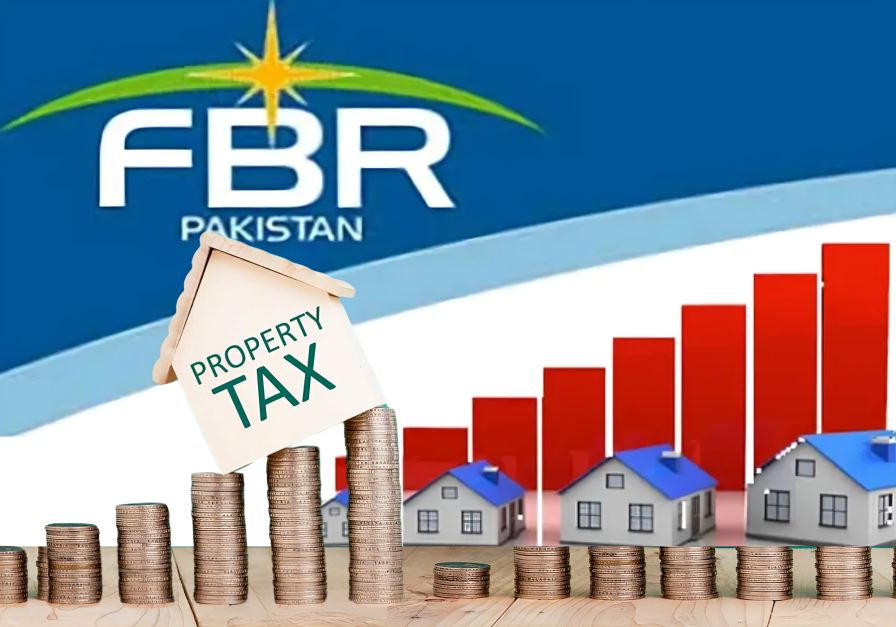In a significant move that has sent ripples through the real estate market, the Federal Board of Revenue (FBR) in Pakistan has announced a property valuation increase of up to 80%. This decision is poised to have far-reaching implications for property buyers, sellers, and investors. Understanding how this change affects you is crucial if you are involved in real estate transactions. This article delves into the details of this increase, its motivations, and its potential consequences on the market.
What is the FBR Property Valuation?
The Federal Board of Revenue is responsible for establishing property valuation rates, which determine the tax liabilities for property transactions. These valuations play a critical role in how much buyers and sellers pay in taxes, including capital gains tax (CGT) and stamp duty. Historically, these rates were much lower than actual market prices, allowing for tax avoidance.

Why Did FBR Increase Property Valuations?
The FBR’s decision to increase property valuations stems from the need to align tax collection with market realities. Here are some key reasons behind this hike:
- Bridging the Gap: For years, the official property valuations were significantly lower than market values. This gap allowed property owners to evade taxes, leading to substantial revenue losses for the government.
- Combatting Tax Evasion: By raising property valuations, the FBR aims to reduce tax evasion and increase compliance among property owners.
- Boosting Revenue: The government seeks to enhance its revenue base, which is critical for funding public services and infrastructure development.
- Market Regulation: Increased valuations may also help in stabilizing the real estate market by discouraging speculation and encouraging fair practices.
Impacts of the 80% Property Valuation Increase
1. Increased Costs for Buyers and Sellers
With the new valuations in effect, buyers and sellers will face increased costs associated with property transactions. Here’s how:
- Higher Taxes: The most immediate impact will be on tax liabilities. Buyers will now pay more in stamp duty and other taxes calculated based on the new property valuations. For example, if a property was previously valued at PKR 5 million, an 80% increase raises its value to PKR 9 million, resulting in significantly higher taxes.
- Increased Prices: Sellers may also raise their asking prices to cover the increased tax costs. This could lead to a general rise in property prices in the market, making homes less affordable for many buyers.
2. Impact on Investment Strategies
Investors in the real estate market will need to reevaluate their strategies due to these changes. Here are a few considerations:
- Rental Market Growth: As buying becomes more expensive, many people may turn to renting. Investors might find it beneficial to focus on acquiring rental properties that can provide steady income without the burden of high purchase costs.
- Shifting Focus to Emerging Areas: Investors may start looking at properties in emerging markets or areas that are currently undervalued. These areas may offer better growth potential with less tax impact initially.
- Long-term Investment Outlook: Investors might shift their focus towards long-term growth rather than short-term flipping. Holding onto properties for longer periods could become more appealing as the market adjusts to the new valuations.
3. Challenges for First-Time Buyers
For first-time buyers, the new valuations present several challenges:
- Affordability Issues: The increased costs associated with buying property could push many first-time buyers out of the market. Higher taxes, combined with rising property prices, can make home ownership unattainable for many.
- Increased Loan Amounts: First-time buyers relying on bank loans will have to borrow larger amounts to cover both the purchase price and the taxes, leading to higher monthly repayments and increased financial strain.
4. Market Adjustments and Stabilization
The real estate market may initially react negatively to the increased valuations. However, in the long term, these changes could lead to more stability:
- Discouraging Speculation: Higher transaction costs may deter speculative investments in real estate, leading to a more balanced market.
- Encouraging Transparency: Aligning property valuations with market prices can increase transparency in the market, fostering trust among buyers and sellers.
What Should You Do Now?
Given the impending changes, here are steps you can take to navigate the new landscape effectively:
1. Stay Informed
Keeping up to date with the latest developments from the FBR and the real estate market is crucial. This information will help you make informed decisions regarding buying or selling property.
2. Consult Professionals
Engaging with real estate professionals, such as agents and tax advisors, can provide valuable insights. They can help you understand the implications of the valuation hike and guide you through the buying or selling process.
3. Reevaluate Your Investment Strategy
If you’re an investor, it’s time to reassess your portfolio. Consider diversifying your investments to include rental properties or emerging markets that may offer better opportunities amidst changing valuation dynamics.
4. Explore Alternative Financing Options
First-time buyers should explore different financing options. Look for government programs or incentives designed to assist buyers in overcoming the financial challenges posed by the increased valuations.
Conclusion
The FBR’s decision to raise property valuations by up to 80% is a pivotal moment for Pakistan’s real estate market. While this change will increase costs for buyers and sellers and challenge first-time buyers, it also holds the potential for a more transparent and stable market in the long run.
Understanding these changes and their implications is essential for anyone involved in property transactions. Whether you’re a buyer, seller, or investor, staying informed and adapting your strategies will be key to navigating this evolving landscape successfully. As the market adjusts to these new realities, the focus on transparency, compliance, and fair practices will shape the future of real estate in Pakistan.
